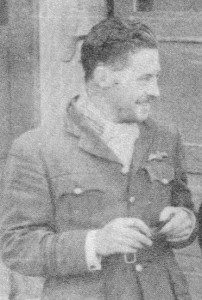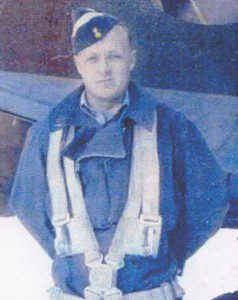
The purge and transfer of 19 Commonwealth air officers away from Stalag Luft III to Belaria, the satellite prison camp, on Feb. 29, 1944, put several key escape committee department heads – Floody, Fanshawe, Brown and Harsh – out of action.
Ironically, the anti-tunnelling guards did not purge Roger Bushell, apparently on the assumption that Big X had disconnected himself from all escape attempts. Indeed, Bushell made certain he was spotted in innocuous pursuits – attending language classes and rehearsing for an upcoming production of “Pygmalion” at the North Compound theatre. In fact, he extolled fellow kriegies to redouble their escape efforts.
With Wally Floody, the original tunnel king, out of the picture, digger Robert Ker-Ramsey took the lead underground in Tunnel “Harry.” Frustrated by the loss of their compatriots, the tunnellers ramped up their workload.
The crew underground doubled with two diggers at the face of the tunnel and two in each of the two halfway houses – Piccadilly and Leicester Square – moving the sand out even faster. Carpenter Jim McCague had assistance preparing timber for shoring up the tunnel walls and Gordie King’s shift on the bellows pumping air through the ventilation system went to 8 hours.

Flying Officer John Colwell (below left), a peacetime chicken farmer from Vancouver Island, kept a daily and detailed diary of the kriegies’ experience through this period. “March 1. Six inches of fresh snow. They purged POWs to Belaria on morning appell. March 3. Made a pair of wooden chuppils (sandals). March 4. Made baking pan. Saw a daylight raid by USAAF.”
If his diary references seemed clipped, it’s because F/O Colwell, a.k.a. “The Tin Man,” spent most of these early March days and evenings in his other job, receiving sand through the theatre seat trapdoor and disposing of it beneath the raked floor boards of the North Compound theatre. With the volume of excavated sand multiplying exponentially, Colwell’s crew increased in number tamping the sand into every nook and cranny of the theatre basement. They were “disappearing” upwards of a ton of sand every few days.